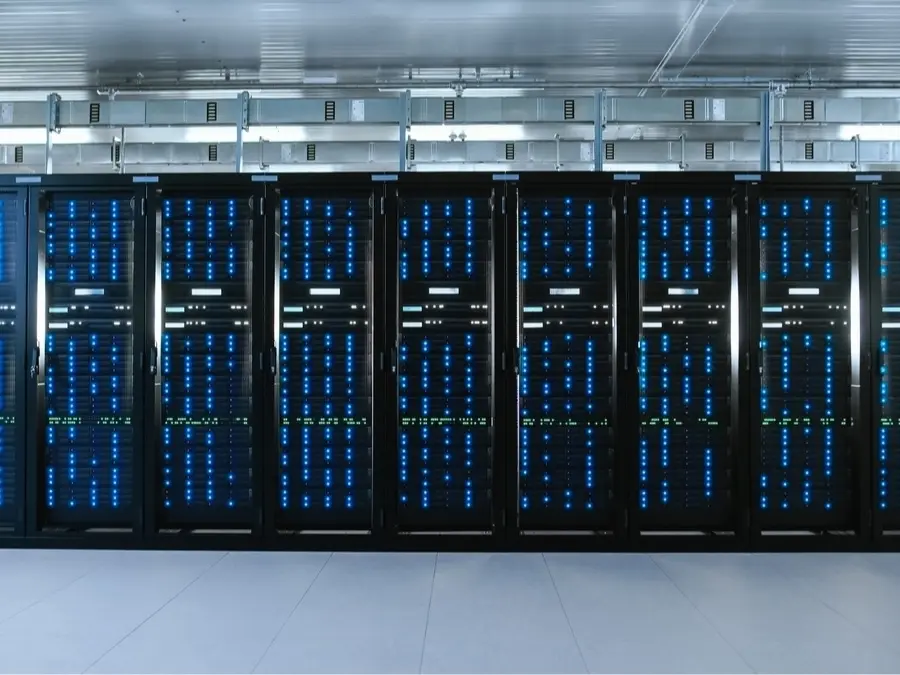Copyright Joliet, IL Patch

Data centers, which power AI systems, are being pushed by state leaders despite vocal resistance from residents and municipalities. CONSHOHOCKEN, PA — Vocal opposition is developing to a new proposal to build a data center at the site of the now shuttered Cleveland Cliffs steel plant in Conshohocken. While developers and state politicians like Gov. Josh Shapiro have eagerly courted data centers as routes to quick economic gains, residents and local officials point to the astronomical electricity bills and devastating water usage that comes with the facilities. Data centers, which are essentially just facilities that store computer servers and other IT infrastructure, have existed for decades. But their demand has skyrocketed in the past two years due to the artificial intelligence boom, as the supercomputers required to power the massive undertaking need more and more space. See related: Massive Conshohocken Steel Mill Up For Sale In 'Generational' Listing Brian O'Neill, the developer behind the data center and numerous high profile apartment complexes and commercial spaces in the Conshohocken area, has not said publicly who the tenant will be. "This data center would occupy 66 acres of Plymouth Township's riverfront corridor and benefit mysterious Big Tech tenants who are unwilling to disclose their identities," the Change.org petition reads. "This data center would put our communities and residents at risk. It is a power plant next to a high-density residential area and adjacent to the Schuylkill River Trail, which brings visitors from across the Philadelphia area to enjoy its scenic views." More than 500 people had signed the petition as of Tuesday. See related: Amazon's $20 Billion AI Data Centers Under Fire In PA But concerns over the data center extend beyond the simple environmental and financial concerns that appear on the surface, concerns that have been echoed across the country. There's now a deepening worry that developers and tech companies behind the push for data centers are working with state officials to strong-arm local municipalities and the established zoning and hearing process. Beyond Gov. Shapiro's outspoken and seemingly unconditional support for data centers, state legislators are advancing legislation that would remove local control over energy infrastructure projects and hand it over to a state "Reliable Energy Siting and Electric Transition (RESET) Board." This would mean that the Plymouth Township Zoning Board, whom O'Neill and his team need to sway in order to get the project approved, would be entirely circumvented. The Plymouth Township Planning Board's recommendation earlier this month to reject the proposal would be rendered meaningless. And despite this intense opposition from their constituents, numerous Montgomery County state legislators are co-sponsoring House Bill 502, including Reps. Greg Scott, Steve Malagari, Ben Sanchez, Melissa Shusterman, Liz Hanbidge, and Nancy Guenst. The bill's supporters say that it is removing "red tape" that gets in the way of the swift approval of major energy projects. A co-sponsorship memorandum does not address concerns surrounding the removal of local control, which have been expressed by municipalities and residents around the state. "It is extremely disappointing to see my local representatives advocate for the silencing of local voices in our communities," No Conshy Data Centers, the group organizing some of the resistance to the Conshohocken plan, said in a statement. "We are the ones who will live next to these energy infrastructure projects. We will suffer the daily effects of their environmental pollution." The co-sponsorship memorandum says that developers need "certainty," and that they'll take their business elsewhere if their projects must be reviewed at the local level. "This 'one-stop-shop' approach has proven successful in other states by making it easier for developers to get their projects built," the memorandum says of plan to have a state board adjudicate proposals. It would apply for any data center or energy infrastructure proposal involving more than 25 megawatts of power. The Zoning Board Hearing in Plymouth Township will be held on Nov. 17. Activists said they believed the date was pushed back at the request of the developers in hopes that the proposed legislation would be passed before then, rending the Zoning Board moot. Data centers scrambling for PA foothold Amazon announced a $20 billion investment in Pennsylvania data centers earlier this year. The proposal was pushed across the aisle by both Gov. Josh Shapiro and U.S. Sen. David McCormick, who have called it a "historic investment." At the time, critics said that elected officials have left many questions unanswered while whitewashing the details, and that Amazon will be the only true beneficiary. "These centers do not exist in a vacuum," Sierra Club Pennsylvania Chapter Deputy Director Sarah Corcoran said in a statement. "They bring with them increased strain on the local power grids, a need for additional power sources, increased levels of air and water pollution, and decreased peace of mind." The first campuses will be in Salem Township in Luzerne County and in Falls Township in Bucks County, Amazon announced in June. Other communities will be identified later. The facilities will bring 1,250 new jobs, including data center engineers, network specialists, engineering operations managers, and security specialists, Amazon said. But many of the jobs are short-term construction jobs, and the facilities themselves require comparatively little manpower to run. "These data centers and their jobs claims are a dangerous bait and switch," Carrie Santoro, the executive director of the grassroots nonprofit Pennsylvania Stands Up, wrote in an op-ed. "Reporting has concluded that data centers provide poor quality jobs, and at numbers drastically lower than the bombastic claims these corporations make." Meanwhile, the power the data centers require is enormous. Average U.S. electricity generation costs could skyrocket by 8 percent by 2030 absent radical policy change, according to a June 2025 study from Carnegie Mellon University. In markets where data centers are pulling from the local grid, that could be as high as 25 percent, the study shows. Researchers also expect data centers increase greenhouse gas emissions from power generation by 30 percent over the next five years. Cooling requirements for vast supercomputers also cause carbon emissions, raising a similar concern to cryptocurrency mining. "Pennsylvania power will be used for these projects, but the only ones to benefit will be the companies bulldozing their way through our local governmental bodies and our farm fields," Corcoran added.



